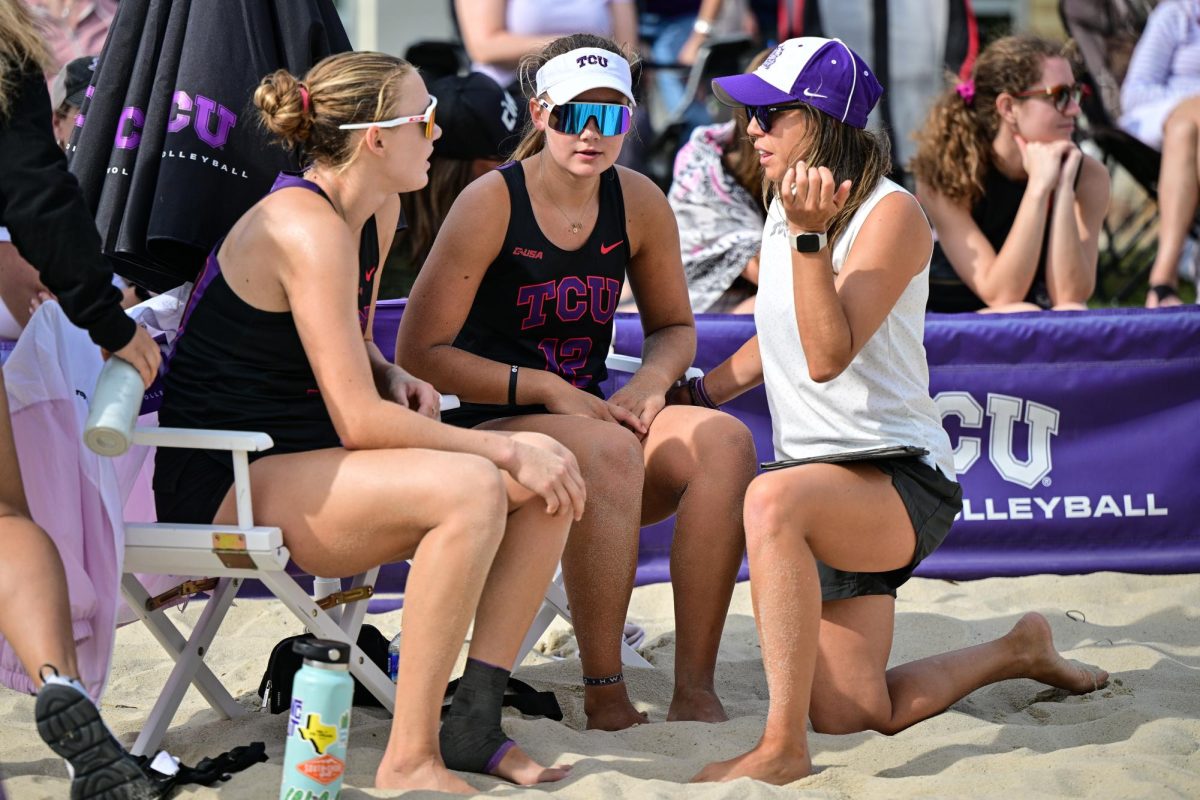If unlimited meal plans aren’t enough for TCU student-athletes, they now have another way to get their fills.
In response to new NCAA rules regarding the nutritional needs of student-athletes, a fueling station for TCU athletes opened this week, TCU athletics department officials said.
The NCAA legislation states that all student-athletes—both scholarship athletes and walk-ons—are to receive unlimited meals and snacks “incidental to participation.”
“Athletes’ health and well-being is of the utmost importance because we want them to compete academically and athletically,” said Andrea Nordmann, senior associate athletic director for compliance and student services.
The fueling station is located inside the Physical Performance Center, the weight room connected to the Sam Baugh Indoor Practice Facility. A full-time sports dietician will offer fruit, sandwiches, nutrition bars and other food choices to athletes.
“It’s broken down into situations, like if someone is trying to gain weight or maintain weight,” Nordmann said. “But it’s within guidelines of what we can put in them and what we can’t.”
Other university programs responded in their own ways to the legislation. Boise State University added two fueling stations to two separate weight rooms; Clemson University gave its athletes unlimited meal tickets and offered them transportation to the school’s cafeteria whenever they want; and Auburn University opened a new dining hall that athletes can eat at for free.
“Everyone is just kind of feeling [the legislation] out right now,” Nordmann said.
Some programs, like the University of Oklahoma, got creative with their responses. OU is funding a food truck that will move around campus to provide snacks and meals to its athletes.
Chris Del Conte, TCU’s director of intercollegiate athletics, said something like that would not be necessary for TCU.
“All of our facilities are very close,” Del Conte said. “We’re not a spread out campus. With the proximity of our campus, we wanted one location [for the fueling station]. That’s why we put it in the weight room.”
All TCU student-athletes in all sports will have access to the fueling station.
“We’re taking care of everybody,” Del Conte said. “No one’s being excluded.”
Del Conte said many athletics programs have separate training tables, which prepare specific meals for their athletes. Baylor University, for example, included a training table in its new football facilities.
However, TCU’s fueling station will only serve as a resource for athletes and won’t prepare specific meals.
“Just because the food is available does not mean everybody needs to eat it or that they need to eat everything that’s available,” Nordmann said.
The meal reform was the fallout from former University of Connecticut basketball player Shabazz Napier’s hunger claims. Napier said he went to bed “starving” during an interview last spring in the midst of UConn’s Final Four run.
Nordmann said the resulting national attention pressured the NCAA to make a change.
“[The legislation] was already in the pipeline, but it got pushed through,” Nordmann said.
The new rules replaced the NCAA’s “fruits, nuts and bagels” legislation that Nordmann said wasn’t taken very seriously.
“Whenever you wanted, you were allowed to provide fruits, nuts and bagels—no spread—all day [to athletes],” Nordmann said. “It became a running joke. Well what really is a fruit? What really is a nut?”
The new legislation’s gray area is in the words “incidental to participation.”
“[The NCAA] wont tell you ‘what incidental to participation’ means,” Nordmann said. “But that’s at the discretion of every instituition across the country.”
Matt Johnston, a TCU alum and former TCU football player, said he never had any issues when it came to getting enough food.
“In terms of food and everything, I was always fine,” said Johnston, who was a walk-on. “Of course, I was an offensive lineman, so we always ate plenty. But I would always just go to the [Brown-Lupton University Union.]”
Nordmann said the next step for the department could be to consider implementing a training table, but Del Conte said he thinks the fueling station should be enough.
“There’s unlimited meals, what more do you do?” Del Conte said. “There’s not much more.”






